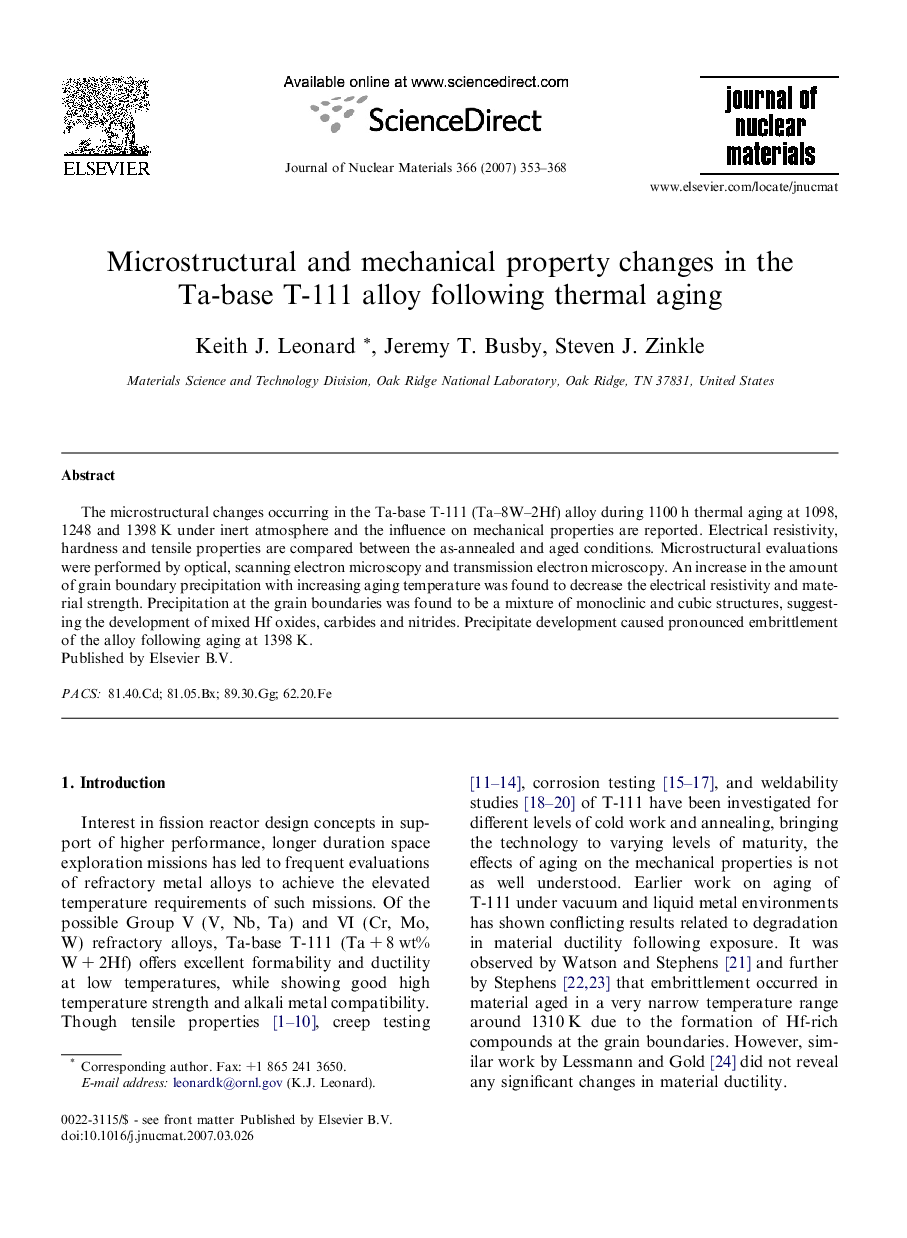| Article ID | Journal | Published Year | Pages | File Type |
|---|---|---|---|---|
| 1569580 | Journal of Nuclear Materials | 2007 | 16 Pages |
Abstract
The microstructural changes occurring in the Ta-base T-111 (Ta-8W-2Hf) alloy during 1100Â h thermal aging at 1098, 1248 and 1398Â K under inert atmosphere and the influence on mechanical properties are reported. Electrical resistivity, hardness and tensile properties are compared between the as-annealed and aged conditions. Microstructural evaluations were performed by optical, scanning electron microscopy and transmission electron microscopy. An increase in the amount of grain boundary precipitation with increasing aging temperature was found to decrease the electrical resistivity and material strength. Precipitation at the grain boundaries was found to be a mixture of monoclinic and cubic structures, suggesting the development of mixed Hf oxides, carbides and nitrides. Precipitate development caused pronounced embrittlement of the alloy following aging at 1398Â K.
Related Topics
Physical Sciences and Engineering
Energy
Nuclear Energy and Engineering
Authors
Keith J. Leonard, Jeremy T. Busby, Steven J. Zinkle,
